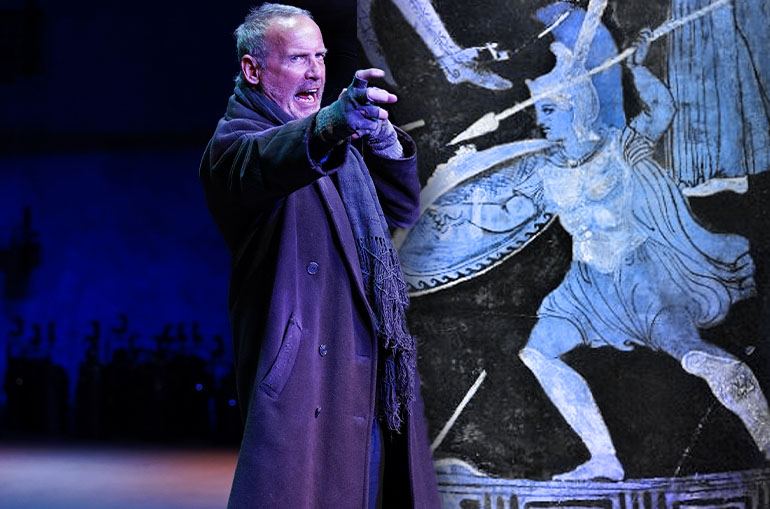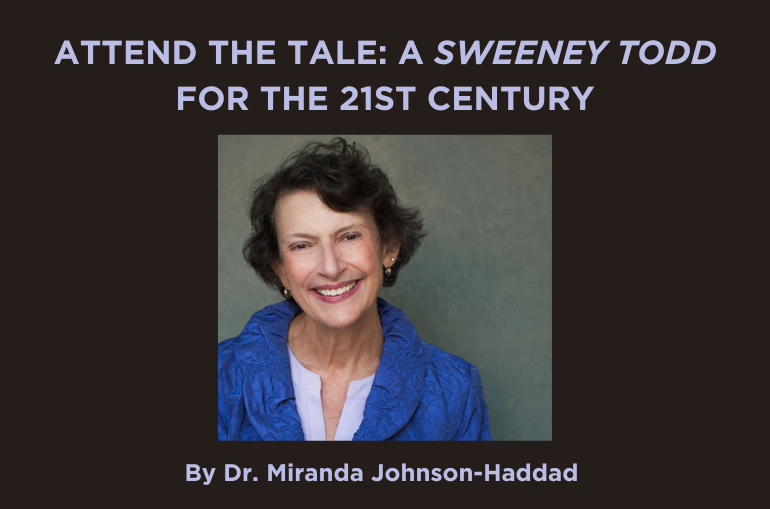An Iliad: The Theater of War

By A Noise Within
April 29, 2021
By Dr. Miranda Johnson-Haddad
Unlike the poet-narrator of Homer’s classical epic poem The Iliad, the Poet who relates the tale of the Trojan War in An Iliad apparently has firsthand knowledge of the subject matter. Although Homer (if an individual author with that name ever existed) recounts events that happened in the distant past, the Poet of An Iliad seems to describe events as an eye witness. Indeed, the Poet’s propensity to get carried away by the tale forms the central theme of the play: that we all share the same violent, murderous impulses that led to the battle of Troy and that define the towering figures of that war, Achilles and Hector. The first word of Homer’s poem is, famously, “Rage”; and the Poet of An Iliad never lets us forget that rage not only lies at the foundation of every war ever fought, but that rage also constitutes the very core of human nature, informing even our most trivial interactions.
Homer’s poem as we know it today did not, in all likelihood, begin as a written work at all. Playwrights Lisa Peterson and Denis O’Hare write in their Introduction to An Iliad (first published and performed in 2014) that as they worked on their play, they became convinced that “the staggering tale of the Trojan War really was spoken out loud and passed from storyteller to storyteller for centuries before it was ever written down.” Although they note that they had originally studied Homer’s poem as literature (as most of us do), they came to conclude that re-imagining this work, so profoundly influential of Western civilization, in dramatic form would restore it to its origins in the oral tradition.
As a result, their Poet figure is a performer, who both enacts and embodies the Homeric tradition; and in doing so, the Poet also enacts and embodies the bloodthirsty legacy of war that continues to define the human race. The Poet is, as Peterson and O’Hare note, “a compendium of war.” And as the Poet observes, near the play’s conclusion, “Achilles…is addicted to rage – as so many of us are, really, when it comes right down to it.” The Poet may be able to transcend time, but paradoxically the Poet is also trapped by it, and by our own complicity in this theater of war; for the Poet is doomed to perform these tales until people and nations learn better, just as we are doomed to watch Achilles’s insatiable rage, and our own, unfold until we make different, and better, choices.








